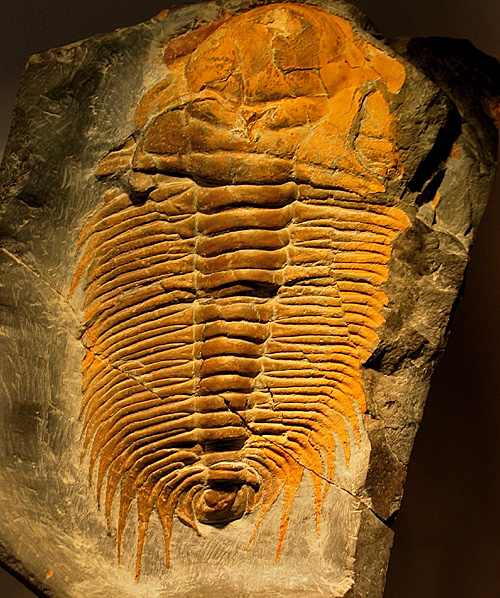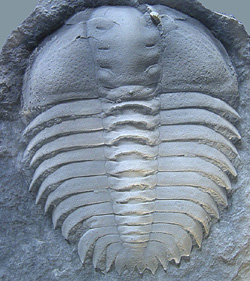Meeting Format:
The 3rd German conference on trilobites is organized for fossil collectors and amateur palaeontologists. Nevertheless we are looking for every palaeontologic expert or student, who would like to pass his or her knowledge to a highly interested audience.
This conference gives academics and amateur palaeontologists the opportunity to build a bridge to collectors to get access to interesting collected material for further scientific investigation. Maybe shared papers will result from this symposium.
The lectures will be held mainly in German language. But also English lectures from collectors, students, amateur palaeontologists and academics are most welcomed. We would be pleased about every participant from abroad, who wants to enrich the symposium with his or her experiences. Conference content: 1.Presentation programme: Prof. Dr. Richard A. Fortey will present the main lecture of the conference, giving an overview on his thoughts and thesis about trilobite life habits.
Additional palaeontologic acadamics have announced that they will participate. Dr. Brigitte Schoenemann, specialist on the construction of palaeozoic arthropods eyes, will join the conference. Dr. Oldrich Fatka and Dr. Petr Budil from Prague have announced their participation. They are specialists on trilobites from the Barrandian.
Again we expect a very interesting programme with numerous lectures, each about 15 minutes.
The first conference in 2009 at the Museum für Naturkunde in Berlin and the second symposium in 2011 at the Senckenberg Museum in Frankfurt/Main have set standards.
Everyone who likes to participate to the symposium is invited to present his or her knowledge in a small lecture. The following subjects are thought as suggestions and not as a limitation:
Palaeobiology: |
- ontogeny, larval stages, mode of life of adult, juvenile and larval specimens
- assumed gender dimorphism
- growth, moulting, special moulting modes; mass accumulation of exuviae
- sensory organs (eyes, sensory hairs, sensoric fields ... )
- pathology, teratology, wound healing and regeneration
- feeding (hints on nutrition, predatory , filtration ... )
- enrollment, protection, local cluster in hide-out (e.g. in cephalopod shells)
- survival strategy and adaptation
- proof of life style, trace fossils
|
Morphology: |
- functional morphology, functions of individual carapace structures, e.g. terrace lines, tubercles, pore openings ...
|
Anatomy: |
- fossil preservation of appendages, musculature, vasculature structure, digestive system ...
|
Palaeoecology: |
- epizoal encrustation (alive, after death), predators, remains of an attack, conditions of the living habitat (coral reef, shallow water ...)
|
Systematics: |
- systematic significance of individual carapace structures, new species or genera ...
|
Phylogeny: |
- development directions, stratigraphic record individual taxon etc.
|
Geography: |
- local fauna, endemic species, alien fauna elements, palaeogeographical distribution ....
|
Miscellaneous: |
- reports on global trilobite localities, highlights from the own collection, collecting experiences
|
Preparation: |
- the pleasure of preparation, difficulties, used equipment, tools, chemicals etc.
|
2. Exhibition
We are planning an exhibition of collector's pieces during the symposium. All collectors are invited to present beautiful or exceptional pieces or just simply a great specimen from their own collection.
3. Miscellaneous We will provide microscopes to take a closer look on the details, and talk about the collected specimens.
As during the preceding conferences, Dr. Frank Rudolph will enrich the event with his presentation table offering fossil literature.
As a cooperation partner, the Museum für Naturkunde Berlin will offer all participants free entree to the museum exposition on the 08th and 09th October 2016.

Hydrocephalus carens, Length 150mm, Middle Cambrian, Skryje, Image: S. Liebermann
|


